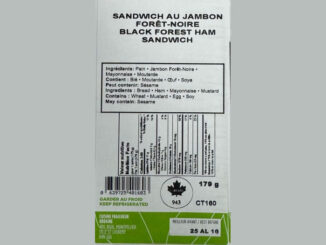
Jim Prevor
It was just February 28, 2020, right before the shutdowns began in America for the coronavirus, that Joe Coulombe, the founder of Trader Joe’s, passed away. He was 89 years old.
We’ve been visiting Trader Joe’s since before it was purchased by brothers Karl and Theo Albrecht, of Aldi fame, in 1979. We confess that we never once considered it to be racist or in any other way objectionable. We would have said the store was kind of light-hearted in its promotion, with staff running around in Hawaiian shirts, nautical décor, etc.
Coulombe grew up on an avocado farm in Del Mar, CA. He did a stint in the Air Force and then earned a Bachelor’s degree with a major in economics. He continued at Stanford to get an MBA.
The genesis of Trader Joe’s was competition. Coulombe worked for Owl-Rexall, the drugstore chain, and he had been asked to develop Pronto Markets, a convenience store concept. Eventually, Rexall was going to close the division, and Coulombe bought the company—having to sell his house, borrow from Bank of America and get his employees to buy stock. He ran it for several years as a convenience chain and then heard that 7-Eleven was coming into the Pasadena market. He felt he would lose out in a competitive battle. He explained his thoughts in a 2006 article in Stanford Business, which is published by Stanford’s Graduate School of Business:
“The guy with the most money wins. He gets the best locations. It’s very simple,” Coulombe says now, but he knew it then.
His best hope for survival was to come up with a new idea so the stores didn’t compete head on with 7-Eleven. He had to appeal to a particular demographic group that would seek out his stores, even if he couldn’t put them in the best locations.
It took more than a year for the idea to crystallize. Part of his inspiration came from an article in Scientific American detailing a new generation of college-educated adults. Up to 60% of young people would be going to college, the article told him, up from just 2% in the early 30s, when he was born. Clearly, college was a factor that would transform society.
Second, he read about the coming of the Boeing 747, a larger plane that would greatly reduce the cost of foreign travel. Coulombe began to see the demographic slice he wanted to attract: the growing group of people who were well educated and looking for something different—perhaps a bit exotic—but with a keen eye for a bargain.
As he tells it today, he saw his customers as teachers, musicians, journalists—the overeducated and underpaid.
The final piece of the puzzle fell into place on a Caribbean vacation. Lounging on the beach, he saw what Trader Joe’s would look like: a South Seas trading post with fishing nets and oars adorning the walls.
Trader Joe’s became a leader selling premium items, such as specialty cheese. For a while, it was the number one seller of Brie in America.
After he retired, Coulombe served on many boards, including those of Denny’s and Bristol Farms. He was always focused on the idea retailers needed to be uniquely aligned with their clientele. For him, that was often the idea of a new generation of Americans who were far better educated than in the past but not necessarily highly paid. Coulombe used to joke that Trader Joe’s would get great press because journalists fell in that well educated but not necessarily well paid bracket.
May Joe rest in peace.
Now, all of the sudden, a high-school senior claimed that Trader Joe’s was an exemplar of cultural exploitation because it markets many ethnic products under trade names such as Trader José for Mexican foods or Trader Ming’s for Chinese food.
By mock way of explanation of its theme, the Trader Joe’s website says the Trader Joe’s name came from Joe having “been to the Disneyland Jungle Trip ride.” The Wall Street Journal suggested that the inspiration behind Trader Joe’s name may have been the Trader Vic’s restaurant chain, which claims to be the home of the original Mai Tai.
The culture being what it is today, The Wall Street Journal explains that Trader Joe’s surrendered instantly. Trader Joe’s claims it had already decided to phase out the “offensive” names:
“While this approach to product naming may have been rooted in a lighthearted attempt at inclusiveness, we recognize that it may now have the opposite effect—one that is contrary to the welcoming, rewarding customer experience we strive to create every day,” said Kenya Friend-Daniel, the company’s director of public relations.
When the current period of ultra-cultural sensitivity is past, perhaps it will be realized that these “concerns” help no one at all. Nobody gets better educated. Nobody makes more money. Nobody is happier.
Indeed, as The Wall Street Journal pointed out, the high school student who did this will now get into an Ivy League school. Aside from that, we can say the world will be a little less fun and the real problems of the world today will be neglected a little longer. DB



